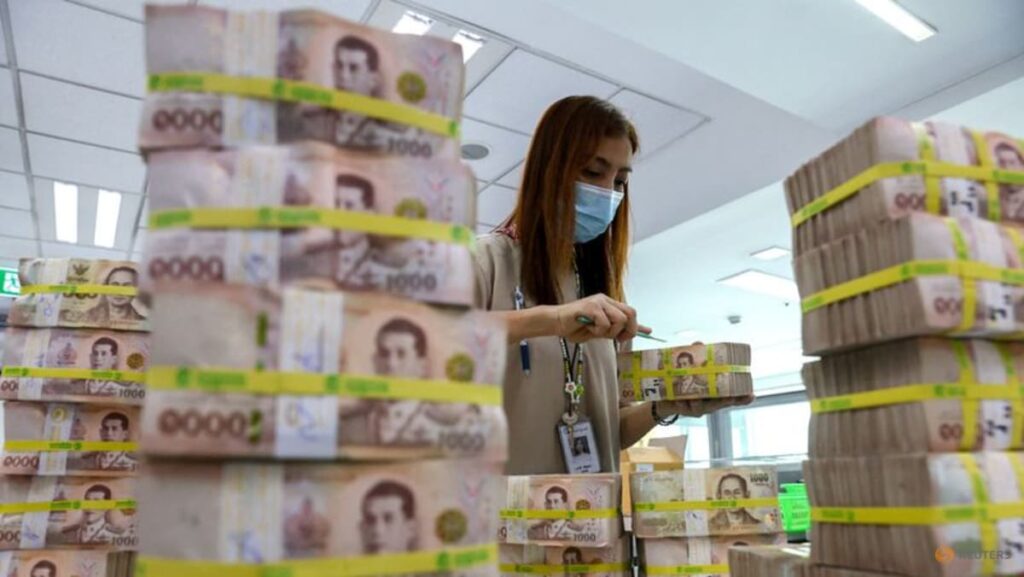OFFICIALS SHOULD RECOGNISE THEIR LIMITS
Urging the state to ride to the rescue can only achieve so much. But it does get the attention of a new administration that might be eager to notch some early wins, however superficial.
A baht that’s too robust “destroys the country’s competitiveness”, declared the Thai Chamber of Commerce chief. Businesses tend to prefer exchange rates that are weaker rather than strong. It’s tricky to identify a correct level for a currency that is, ultimately, subject to market forces.
Officials aren’t entirely powerless, but they should recognise their limits. The Bank of Thailand vowed to curb fluctuations. Interest rate cuts, already on the cards after a fan of easy policy was named to lead the authority, may come faster and might be deeper. Thailand’s battle with deflation warrants lower borrowing costs. Consumer prices have been declining since April, and officials have been far too conservative.
The baht has a close link to gold, which has climbed about 45 per cent this year to a record. Thailand is a minnow in production, but is one of Asia’s largest markets for the precious metal. When Thailand’s residents trade bullion and proceeds are converted to local currency from dollars, the baht gets a boost. Gold plays a major role in religious ceremonies, and is often given to newlyweds and newborns.
The relationship is so tight that it can make the local currency seem gravity-defying, even when there’s little in the outlook to encourage baht bulls. Tourism, long a bright spot when other sectors faltered, is enduring some tough times. Manufacturing tumbled in August. And tariffs imposed by the White House will hit exports.
Bank of Thailand Deputy Governor Piti Disyatat summed it up well in an interview in August. “Our economy is growing below potential right now,” he told Bloomberg TV. “Fundamentals would dictate a slightly weaker currency than you would think at this point.”
Then there’s the Southeast Asian kingdom’s fraught politics. Anutin Charnvirakul was sworn in last week as the third prime minister since inconclusive elections in 2023. Many of his predecessors haven’t lasted very long, ousted by courts or the army.
Anutin himself only secured support in parliament by agreeing to call a fresh vote within months. He’s under pressure to stimulate the economy, which might, ironically, strengthen the baht.
Read the full article here

